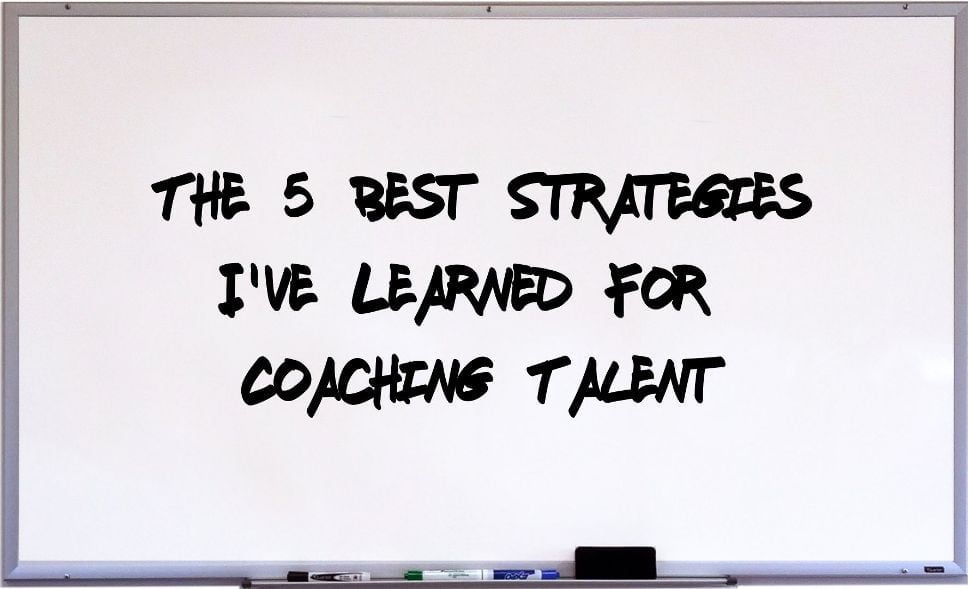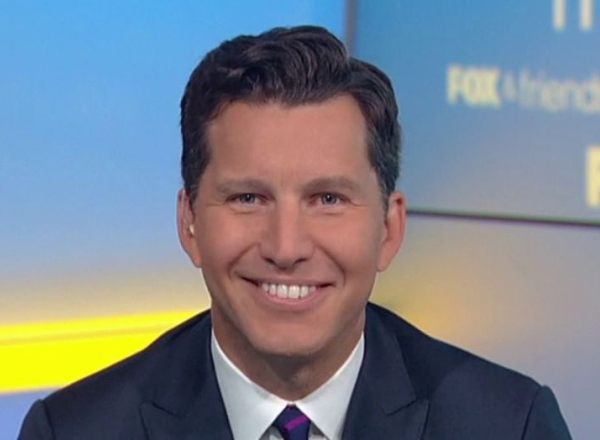Over the course of my nearly three decades managing content for spoken word brands, (and six months with a digital startup) I’ve been blessed to have the opportunities to lead some amazing talent.
One thing I never had a shortage of, was advice on how to coach, mentor and lead.
If I had a nickel for every leadership summit I was dragged to, every life coach I had to meet with, every book on successful management I had to read, I’d be able to retire by now.
The reality is, there is no right answer to “what makes a great leader or coach”. It’s different for everyone because everyone is different.
That being said, there are five key things I’ve learned that have served me well in managing talent.
None of these ideas are new. I’m sure that many of you have heard them before. They were all conceived by people that are far smarter than I am.
Oh, and before I begin, I’m certain that many former hosts I’ve worked with will read this and think to themselves:
“What a load of crap. He NEVER did that with me.”
I will qualify this column by saying that every one of these five tenants that I’m about to share came with years of making mistakes and learning the hard way.
LET THEM KNOW YOU HAVE THEIR BACK…QUICKLY

The minute that a Program Director walks into the building, the talent universally has one question on their minds: “Can this guy get shit done?”
No one likes an empty suit. No matter how many wins you have on your resume, you are 0-0 when you take over any new station. You need to get some “wins” and you need to do it fast or else you will lose everyone even faster.
The best way to win over talent is by showing them you can help them be successful. More often than not, it involves removing obstacles that they couldn’t overcome.
I remember once when a talent came to me because he was upset that he was using two producers on his show. He preferred one over the other. We talked about it, what he said made sense and I asked him the simple question, “Why weren’t we doing this already.”
“The old PD wanted to do it this way,” he replied.
“Done,” I said. “I’ll talk to the producers and let them know that we’re making this change so you won’t have to be the bad guy.”
In the weeks that followed, that host went on to produce some of the highest numbers in the history of the radio station.
Another time, a veteran host literally tiptoed…tiptoed into my office, sat down and said meekly, “I need a favor.”
There was a stunt he wanted to do, it was a fairly minor one. Without going into the details, the worst risk, I could surmise was that we may get written up for a misdemeanor by the police. Deep down, though, I knew it would make for GREAT radio.
So, I went up to the GM’s office, laid it out to him, emphatically stated that it was a good idea and eventually got the green light.
The stunt was a winner, the station got great publicity and the talent went on to get some of the highest ratings of his entire career.
GIVE SPECIFIC FEEDBACK AND DO IT OFTEN

One of the best quotes I ever heard on coaching talent was from the legendary spoken-word programmer Jack Swanson from San Francisco.
“Don’t treat talent like children,” he said. “Treat them like puppies.”
My fellow dog parents will understand this quote. Step one in getting a puppy is teaching them how to behave. You don’t do that by yelling at them when they do something wrong. You do it by PRAISING them when they do something right. Screaming at a puppy when they take a whizz on your living room carpet won’t get them potty trained. However, praising the HELL out of them when they relieve themselves in the back yard will, over time, do the trick.
When talent do something good, let them know. Find the things in their show, podcasts and social media that you like and talk to them about it. Be SPECIFIC. “Hey, that was a great show or a great segment” is empty praise. You need to cite, chapter and verse, what you liked and WHY.
If you do this often enough and consistently enough, they’ll understand what you are expecting from them. On the flipside, they’ll have a better idea of what they’re NOT supposed to do.
Look, most talent understand when they’ve screwed up. Going back to the “puppy” analogy, my two Boston Terriers have developed (as many dogs have) the habit of walking up to me slowly with their ears down, then rolling over and exposing their bellies when they’ve been naughty. Once I see this, I know that somewhere in the house there is a mess I’ll have to clean up. Many of the talent I know have acted the same way. I remember a conversation with a host who had gotten into an ugly shouting match with his co-host on the air. Right as they went into a commercial break, he walked into my office. The conversation went as follows:
“Hey”
“Hey buddy!”
“Uhm, did you hear that last segment?”
“Yup.”
“Do we need to talk about it?”
“Yea, we probably should. Just drop in after the show and we’ll figure it out.”
The conversation that followed his show was long, but not contentious. We both knew what the problem was and that we were more focused on fixing it rather than assigning blame.
MEET WITH THEM ON THEIR TERMS

One morning show host I had, hated meetings. My first month on the job, he would literally dart out the back door of the building right after his show so he could avoid me calling him to my office or cornering him in the hallway.
One thing he DID like, however, was beer.
So, I made him a deal. Once a month, we’d meet over a couple of beers and just talk. I really had to couch this as something that wasn’t masquerading as “just another meeting”. He reluctantly agreed. The first few times we met, I made a point to not talk about work at all. We’d talk about sports, our families, politics, money, etc. These “beer summits” continued on a fairly regular basis. The end result: he opened up. HE started bringing up things about the show that bothered him. I didn’t have to. It was all about putting him in a comfort zone and letting him talk on his terms, not mine.
There was another host I had, who would walk into my office after almost every show, sit down on my couch and just start talking. He CRAVED feedback. CRAVED it. He wanted to know how I felt about virtually every program. Many times, I’d sit down and aircheck him on the spot. Once he left the building, though, he was done. He wouldn’t respond to calls or texts. I would try e-mailing feedback and he’d never read it. Eventually, I figured out that he was giving me a window to work with him and, as long as I stayed within that, I could reach him. As a rule, I never scheduled anything the one hour AFTER his show ended.
LISTEN MORE…TALK LESS

Talk show hosts all have two things in common.
- They talk a lot.
- They all want people to listen to them.
Some of the best ways to gain a talent’s trust is by shutting your mouth and listening to what they have to say.
I remember a particular Monday morning one fall, just as I was about to head to a sales meeting, our morning show host walked into my office, shut the door and slumped down on the couch in front of me.
For twenty straight minutes, he ranted and raved about everything wrong with his show, with the station, with the industry, and so on.
After his passionate diatribe (when he had to stop and take a breath), I chimed in.
“What do you want me to say?” I asked.
“I DON’T WANT YOU TO SAY SHIT,” he screamed. “JUST FUCKING LISTEN TO ME!”
That statement was so powerful, it literally knocked me back in my chair. From that day on, it was cemented in my head.
Many times, talent don’t want advice or counsel. They just want to know that they’re being heard. They sit in an empty room for 3-4 hours every weekday, talking into a microphone, and hoping that what they’re saying will resonate with people. If they can’t get that satisfaction from their show, YOU will have to give it to them.
SHOW THEM HOW THE SAUSAGE IS MADE

On more than one occasion, I’ve had a fellow PD tell me, “I don’t talk ratings with my hosts, ratings are all bullshit, anyways!” This is something that, for the LIFE of me, I’ve never understood.
Oh, I get it, we don’t want them to focus on ratings. We want them to just focus on doing good content. Here’s the rub: hosts are going to worry about ratings no matter what. Why shouldn’t they? A portion of their income is usually TIED to them (by way of bonuses). If we don’t give them OUR spin on the numbers, they’ll seek it out from other people.
Look, as PD’s, we all have a love/hate relationship with Neilsen. And if we can actually get the digital folks in the building (or company) to give us accurate numbers on streaming or podcast downloads…it can be a headache trying to unravel it all. But the reality is, we’re doing ourselves (and our talent) a major disservice if we don’t explain the methodology and how we can get it to work to our advantage. We don’t necessarily need to give people an algebra equation to solve. However, we need to explain the numbers in terms they can understand. Don’t downplay them. Often, hosts and producers are smarter than we give them credit for
Virtually every talent I’ve ever worked with wanted to know how the ratings and digital analytics games work. So, I let them take a peek behind the curtain. I’d whiteboard stats for them and bring in experts to explain best strategies on a regular basis. There were times I’d actually have hosts and producers taking photos of PowerPoints I had so they could remember them. Competitive people like to know the score and how to win the game, sometimes all you have to do is talk to them about it.
Ryan Maguire is a columnist for BSM, and a longtime sports and news radio program director. He has managed KIRO-FM in Seattle, WQAM in Miami, 93.7 The Fan in Pittsburgh, 610 Sports in Kansas City, and 105.7/1250 The Fan in Milwaukee. Presently, Ryan serves as the Executive Producer of Chicago White Sox baseball on ESPN 1000 in Chicago. Originally from Michigan, Ryan still holds out hope that the Detroit Lions will one day deliver a Super Bowl title. He can be reached on Twitter @RMaguire1701.







